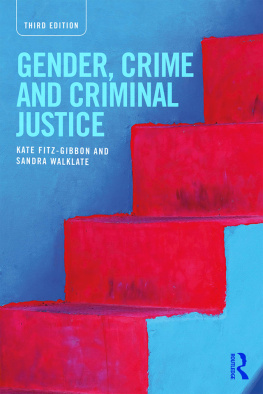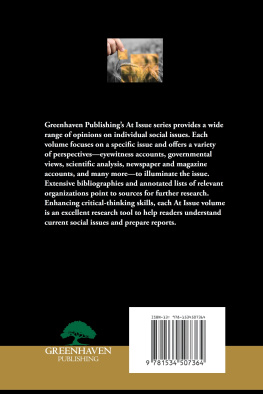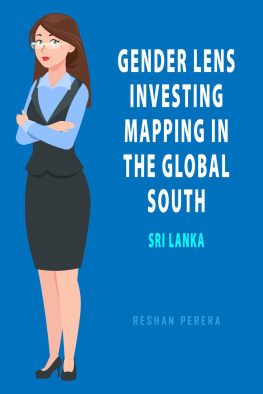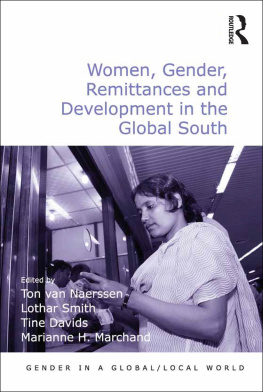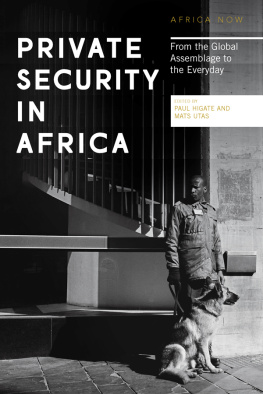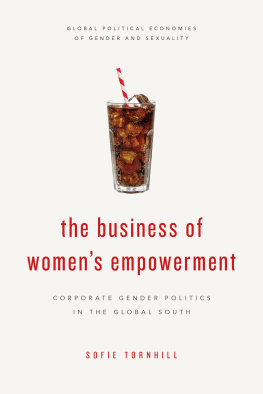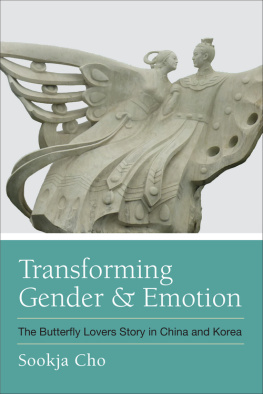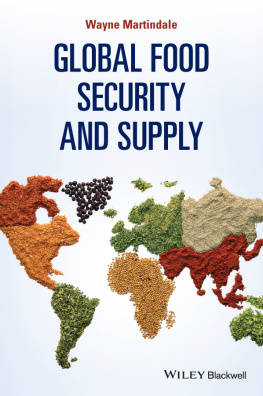Transforming Gender and Food Security in the Global South
Drawing on studies from Africa, Asia and South America, this book provides empirical evidence and conceptual explorations of the gendered dimensions of food security. It investigates how food security and gender inequity are conceptualized within interventions, assesses the impacts and outcomes of gender-responsive programs on food security and gender equity, and addresses diverse approaches to gender research and practice that range from descriptive and analytical to strategic and transformative. The chapters draw on diverse theoretical perspectives, including transformative learning, feminist theory, deliberative democracy and technology adoption. As a result, they add important conceptual and empirical material to a growing literature on the challenges of gender equity in food production.
A unique feature of this book is the integration of both analytic and transformative approaches to understanding gender and food security. The analytic material shows how food security interventions enable women and men to meet the long-term nutritional needs of their households, and to enhance their economic position. The transformative chapters also document efforts to build durable and equitable relationships between men and women, addressing underlying social, cultural and economic causes of gender inequality. Taken together, these combined approaches enable women and men to reflect on gendered divisions of labour and resources related to food, and to reshape these divisions in ways which benefit families and communities.
Jemimah Njuki is a senior program officer in the Agriculture and Food Security program at the International Development Research Centre (IDRC), based in Nairobi, Kenya.
John R. Parkins is a professor in the Department of Resource Economics and Environmental Sociology, University of Alberta, Canada.
Amy Kaler is a professor in the Department of Sociology, University of Alberta, Canada.
Routledge Studies in Food, Society and the Environment
Street Food
Culture, economy, health and governance
Edited by Ryzia De Cssia Vieira Cardoso, Michle Companion and Stefano Roberto Marras
Savoring Alternative Food
School gardens, healthy eating and visceral difference
Jessica Hayes-Conroy
Human Rights and the Food Sovereignty Movement
Reclaiming control
Priscilla Claeys
Food Utopias
Reimagining citizenship, ethics and community
Edited by Paul Stock, Michael Carolan and Christopher Rosin
Food Sovereignty in International Context
Discourse, politics and practice of place
Edited by Amy Trauger
Global Food Security Governance
Civil society engagement in the reformed Committee on World Food Security
Jessica Duncan
Civic Engagement in Food System Governance
A comparative perspective of American and British local food movements
Alan R. Hunt
Biological Economies
Experimentation and the politics of agri-food frontiers
Edited by Richard Le Heron, Hugh Campbell, Nick Lewis and Michael Carolan
Food Systems Governance
Challenges for justice, equality and human rights
Edited by Amanda L. Kennedy and Jonathan Liljeblad
Food Literacy
Key concepts for health and education
Edited by Helen Vidgen
Sustainable Urban Agriculture and Food Planning
Edited by Rob Rogemma
Transforming Gender and Food Security in the Global South
Edited by Jemimah Njuki, John R. Parkins and Amy Kaler
For further details please visit the series page on the Routledge website: www.routledge.com/books/series/RSFSE/
First published 2016
by Routledge
2 Park Square, Milton Park, Abingdon, Oxon OX14 4RN
and by Routledge
711 Third Avenue, New York, NY 10017
Routledge is an imprint of the Taylor & Francis Group, an informa business
Co-published with the
International Development Research Centre
PO Box 8500, Ottawa, ON K1G 3H9, Canada
info@idrc.ca/www.idrc.ca
(IDRC published an ebook edition of this book, ISBN 978-1-55250-590-8)
The research presented in this publication was carried out with the financial assistance of Canadas International Development Research Centre. The views expressed herein do not necessarily represent those of IDRC or its Board of Governors.
2016 International Development Research Centre (except Chapter 8 International Livestock Research Institute)
All rights reserved. No part of this book may be reprinted or reproduced or utilised in any form or by any electronic, mechanical, or other means, now known or hereafter invented, including photocopying and recording, or in any information storage or retrieval system, without permission in writing from the publishers.
Trademark notice: Product or corporate names may be trademarks or registered trademarks, and are used only for identification and explanation without intent to infringe.
British Library Cataloguing-in-Publication Data
A catalogue record for this book is available from the British Library
Library of Congress Cataloging in Publication Data
Names: Njuki, Jemimah, editor. | Parkins, J. (John), 1967 editor. |
Kaler, Amy, editor.
Title: Transforming gender and food security in the Global
South/edited by Jemimah Njuki, John R. Parkins and Amy Kaler.
Description: Abingdon, Oxon; New York, NY: Routledge, 2016. |
Series: Routledge studies in food, society and the environment |
Includes bibliographical references and index.
Identifiers: LCCN 2016006625 | ISBN 9781138680418 (hbk) |
ISBN 9781315564111 (ebk)
Subjects: LCSH: Women in economic developmentDeveloping
countries. | Food securityDeveloping countries. | Women in
agricultureDeveloping countries. | WomenDeveloping
countriesSocial conditions. | FeminismDeveloping countries.
Classification: LCC HQ1240.5.D44 T73 2016 |
DDC 305.409172/4dc23
LC record available at http://lccn.loc.gov/2016006625
ISBN: 978-1-138-68041-8 (hbk)
ISBN: 978-1-315-56411-1 (ebk)
Typeset in Bembo
by Keystroke, Neville Lodge, Tettenhall, Wolverhampton
Dr Paula Kantor, 19692015
To Paula, for her dedication to improving rural livelihoods through gender transformative approaches with rigorous science and a deep sense of humanity, ethics, and friendship.
Paula died on 13 May 2015 in the aftermath of a terrorist attack on the hotel where she was staying in Kabul, Afghanistan. She committed her life and work to gender analysis in agricultural systems, enhancing the lives of rural women and men in the Global South. In 2012, Paula joined CGIAR to champion gender transformative approaches in agricultural research for development. Prior to this engagement, Paula worked at the International Center for Research on Women and as director of the gender and livelihoods portfolio in the Afghanistan Research and Evaluation Unit.



